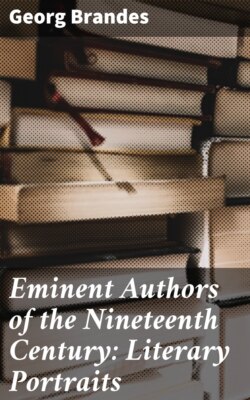Читать книгу Eminent Authors of the Nineteenth Century: Literary Portraits - Георг Брандес - Страница 6
На сайте Литреса книга снята с продажи.
PAUL HEYSE. 1875.
Оглавление"How does it happen," I asked recently of a distinguished portrait-painter, "that you, who formerly have made successful efforts in several other branches of art, have at last confined yourself wholly to portrait-painting?"
"I think it is because it has given me the most pleasure," replied he, "to study and to perpetuate an object which has never existed before, and will never appear again."
With these words he seemed to me strikingly to designate the interest which attracts a person to distinct individuality, that of the inner as well as that of the outer being. To the critic, too, the individual is an especially alluring object; to him, too, the execution of a portrait is a singularly fascinating occupation. Unfortunately, his means of communication are deplorably far behind those of the painter. What can be more difficult and more fruitless than the attempt to express in words that which is purely individual—that which in accordance with its very nature must mock at every effort of reproduction? Is not personality, in its uninterrupted flow, the true perpetuum mobile, which does not admit of being constructed?
And yet these insolvable problems ever charm and attract anew. After we have gradually become familiar with an author, have come to feel ourselves perfectly at home in his writings, to perceive dimly that certain of their characteristics dominate others, and then happen to be by nature of a critical turn of mind, we can find no peace until we have rendered ourselves an account of our impressions, and made clear the indistinct image of the character of another ego that has arisen within our own soul. We hear or read criticisms on an author and find them absurd. Why are they absurd? Other statements seem to us but half true. What is lacking to make them wholly true? A new work of importance from his pen appears. How far have the earlier works been a preparation for it? We almost become curious to learn how we ourselves would characterize his talent—and we satisfy our curiosity.
